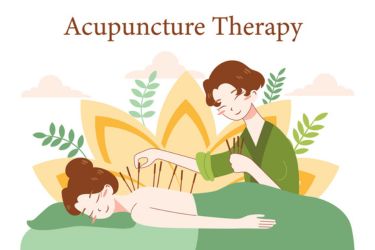Managing obsessive-compulsive disorder (OCD) can feel overwhelming, but there are effective strategies we can use to take control of our lives. By understanding the symptoms and recognising how they affect our daily routines, we can create a personalised plan to manage OCD effectively. Recognising that we are not alone in this journey can also provide comfort and support as we work through our challenges.

In our exploration of OCD, we will cover various treatment options, including therapy and self-care techniques. It's essential to seek help and connect with the OCD community for additional support. Navigating this condition involves understanding not only the symptoms but also how to implement successful management strategies in our everyday lives.
Key Takeaways
- Understanding OCD symptoms helps in developing effective management strategies.
- Personalised treatment plans can significantly improve daily functioning.
- Support from the OCD community is crucial for resilience and recovery.
Understanding OCD and Its Symptoms

Obsessive-Compulsive Disorder (OCD) is a condition that involves persistent anxiety due to intrusive thoughts and compulsive behaviours. We often see how these symptoms can significantly interfere with daily life, causing distress and confusion for those affected.
Defining Obsessive-Compulsive Disorder
Obsessive-Compulsive Disorder, or OCD, is a mental health condition marked by recurring obsessions and compulsions. Obsessions are unwanted, intrusive thoughts that cause significant anxiety or distress. For example, we might have worries about contamination or fears of harming loved ones.
Compulsions are repetitive behaviours or mental acts that we feel driven to perform in response to our obsessions. These actions are meant to reduce the discomfort caused by these thoughts, even if they aren't realistically connected. Common compulsions include excessive washing, checking, or counting. Understanding these definitions helps us recognise the profound impact OCD can have on everyday life.
Common OCD Symptoms and Manifestations
OCD symptoms can vary widely among individuals. Common OCD symptoms include:
- Intrusive thoughts: These can range from fears of harming oneself to doubts about cleanliness.
- Compulsive behaviours: We may feel compelled to wash hands repeatedly or check locks multiple times.
- Avoidance: Some of us may avoid situations that trigger our obsessions, which can limit daily activities.
The distress we feel from these symptoms often leads to repetitive cycles. For instance, we may experience anxiety from intrusive thoughts, prompting compulsive actions that momentarily relieve that anxiety. It is crucial to note that many people with OCD are aware that their thoughts and behaviours are excessive, yet the compulsions provide a temporary sense of control. This cycle of anxiety and relief makes managing OCD challenging and often requires support and treatment.
Diagnosis of OCD

Diagnosing Obsessive-Compulsive Disorder (OCD) involves identifying specific criteria and utilising assessment tools that help measure the severity of symptoms. This process is crucial for developing effective treatment plans tailored to individual needs.
Criteria and Assessment Tools
To diagnose OCD, mental health professionals rely on established criteria outlined in the DSM-5 (Diagnostic and Statistical Manual of Mental Disorders). Key symptoms include:
- Obsessions: Intrusive thoughts that cause significant anxiety.
- Compulsions: Repetitive behaviours aimed at reducing anxiety related to those thoughts.
Assessment tools, like structured interviews and questionnaires, are essential for evaluating the severity and impact of symptoms. We often use screening questions to determine the degree of distress and functional impairment. Based on responses, we can classify symptoms as mild, moderate, or severe, guiding our next steps in management.
The Role of the Yale-Brown Obsessive Compulsive Scale (Y-BOCS)
The Yale-Brown Obsessive Compulsive Scale (Y-BOCS) is a widely recognised tool for assessing OCD severity. It consists of a semi-structured interview and a self-report questionnaire. The Y-BOCS focuses on two main areas:
- Obsessive Symptoms: It measures the frequency and intensity of obsessive thoughts.
- Compulsive Symptoms: It evaluates the time consumed by compulsive behaviours and the distress they cause.
Scores from the Y-BOCS help us track symptom severity over time, making it valuable for assessing treatment effectiveness. Using this scale ensures we have a clear understanding of an individual's challenges, allowing us to create tailored intervention strategies.
Treatment Approaches for OCD

We can effectively manage Obsessive-Compulsive Disorder (OCD) through various treatment approaches, including therapy and medication. These methods aim to reduce symptoms, increase coping skills, and improve overall quality of life.
Cognitive Behavioral Therapy (CBT)
Cognitive Behavioural Therapy (CBT) is one of the most established treatments for OCD. It focuses on identifying and changing negative thought patterns. We learn how these thoughts fuel our compulsions and anxiety.
CBT often includes elements of education about OCD. Understanding how our thoughts relate to our behaviours is key. By challenging these thoughts, we can reduce their power. Importantly, CBT helps develop coping strategies that we can use in daily situations.
Many studies support the effectiveness of CBT in reducing OCD symptoms. It is often paired with other therapies for best results.
Exposure and Response Prevention (ERP)
Within CBT, Exposure and Response Prevention (ERP) is a specific technique. In ERP, we face our fears and gradually expose ourselves to the thoughts or situations that cause anxiety. This exposure is done without engaging in compulsive behaviours.
The aim is to allow us to tolerate the anxiety without "fixing" it through compulsions. By repeatedly facing our fears, we can reduce their intensity over time. This process can be challenging but is essential for recovery.
Research shows that ERP is particularly effective for OCD. Many individuals experience decreased symptoms and improved daily functioning.
Pharmacological Treatments
Medication can also be an important part of managing OCD. Selective Serotonin Reuptake Inhibitors (SSRIs) are commonly prescribed for this condition. These medications help increase serotonin levels in the brain, which can improve mood and reduce anxiety.
It often takes several weeks to see the effects of these medications. Side effects can occur, so we must discuss any concerns with our healthcare provider. Sometimes, combining medication with therapy gives better results than either treatment alone.
Other medications may be prescribed if SSRIs aren't effective. We should keep an open line of communication with our doctor to find the right treatment plan.
Alternative and Emerging Therapies
In addition to standard treatments, some alternative and emerging therapies show promise for OCD management. Acceptance and Commitment Therapy (ACT) is one option. It encourages us to accept our thoughts and feelings rather than trying to change or avoid them.
Mindfulness practices can also complement traditional approaches. By focusing on the present, we can learn to manage anxiety and decrease the urge to engage in compulsions.
Other therapies are being researched, but more evidence is needed. It’s vital that we consult with our healthcare provider before trying any new treatments. This ensures that we choose safe and suitable options for our needs.
Developing a Personalised Treatment Plan

Creating a personalised treatment plan is essential for effectively managing OCD. This approach involves working with qualified professionals to design a strategy that suits our specific needs. It includes various methods tailored to our symptoms, ensuring we have the best chance for symptom reduction.
Incorporating a Multidisciplinary Approach
To manage OCD symptoms effectively, we can benefit from a multidisciplinary approach. This method includes collaboration among different healthcare professionals, such as psychologists, psychiatrists, and therapists. Each specialist brings unique skills and perspectives.
We might engage in cognitive behavioural therapy (CBT), which is widely recognised for helping with OCD. Medication, such as selective serotonin reuptake inhibitors (SSRIs), can also play an important role. By combining these treatments, we can target our symptoms from multiple angles, enhancing our overall progress.
Setting Realistic Treatment Goals
Setting realistic treatment goals is crucial for our journey. These goals should be specific, measurable, achievable, relevant, and time-bound (SMART). For example, instead of aiming to eliminate all symptoms immediately, we might focus on reducing the time spent on compulsions by a certain percentage over a few weeks.
Regularly reviewing our goals with a professional helps us adjust our plan as needed. Tracking our progress allows us to celebrate small victories, which can motivate us further. This approach ensures that we remain engaged and committed to our treatment plan, supporting ongoing symptom reduction.
Managing OCD Symptoms Daily
In our journey with Obsessive-Compulsive Disorder, we encounter various symptoms that can disrupt our lives. By employing practical strategies, we can better manage intrusive thoughts and compulsions. Let’s explore effective methods to address these challenges daily.
Strategies to Resist Compulsions
Resisting compulsions is a fundamental part of managing our OCD symptoms. One effective approach is to create a "compulsion diary." In this diary, we can note the situations that trigger our compulsions, along with our responses.
When we feel the urge to carry out a compulsion, we can try to delay it. We can set a timer for 10 minutes and focus on something else. This helps us build resilience against the compulsion.
Additionally, sharing our experiences with a support group can provide encouragement and insights. Hearing how others cope can inspire us to try new strategies.
Recognising and Addressing Cognitive Distortions
Cognitive distortions often fuel our OCD, making intrusive thoughts seem more significant than they are. To combat this, we should learn to identify these distortions. Common examples include catastrophising and all-or-nothing thinking.
Whenever we notice a distorted thought, we can challenge it by asking, "What evidence do I have?" This helps us regain control over our thoughts.
We must practise reframing these thoughts into more balanced ones. For instance, instead of thinking, "I must do this to be safe," we can say, "I can manage without this." This shift reduces anxiety and lessens the compulsion to perform certain behaviours.
Mindfulness and Relaxation Techniques
Incorporating mindfulness and relaxation techniques into our daily routine can greatly reduce anxiety and improve our mental wellbeing. One effective method is progressive muscle relaxation. We can do this by tensing each muscle group for a few seconds and then releasing. This practice can help us recognise physical tension related to our OCD.
We can also engage in mindfulness exercises, such as focusing on our breath or our surroundings. Taking just a few minutes daily to practise these techniques can ground us and lessen anxiety-provoking situations.
Using apps that guide us through mindfulness practices can be helpful. They often offer short sessions that fit easily into our schedule, making it easier to stay committed to our mental health.
Support and Advocacy in the OCD Community
In the OCD community, support and advocacy play vital roles in helping individuals manage their condition. By connecting with others and accessing resources, we can strengthen our coping mechanisms and improve our well-being.
Finding Local and Online Support Groups
Finding local and online support groups can be crucial for those dealing with OCD. These groups offer a safe space where we can share our experiences and gain comfort from others who understand our challenges. Local groups often meet in community centres or healthcare facilities, providing an opportunity for face-to-face connection.
Online support groups are also valuable, especially for those who prefer anonymity or have difficulty attending in person. Platforms like Facebook and dedicated mental health forums allow us to engage with a wider community. We can share coping strategies, self-care tips, and resources, which can make a significant difference in our daily lives.
Resources with OCD-UK and OCD Action
OCD-UK and OCD Action are key organisations that provide essential support for individuals with OCD. OCD-UK offers educational materials and a range of services aimed at helping us understand the disorder. Their website is filled with informative content that explains treatment options and coping strategies.
OCD Action focuses on improving the understanding and diagnosis of OCD. They provide a self-advocacy toolkit that helps us navigate conversations with healthcare professionals. Both organisations promote community support through events and workshops. By connecting with these resources, we can find valuable help and guidance on our journey towards recovery.
The Importance of Self-Care and Support Networks
Self-care and strong support networks are essential for managing OCD effectively. We must prioritise our well-being through intentional practices and seek help from those around us. Engaging in self-care not only improves our emotional health but also strengthens our ability to cope with obsessive thoughts and compulsive behaviours.
Engaging in Regular Self-Care Practices
Regular self-care plays a crucial role in managing OCD. We can begin by establishing a daily routine that includes activities we enjoy. This can range from hobbies to exercise, which improves our mood and reduces anxiety.
Some effective self-care practices include:
- Mindfulness and meditation: These can help centre our thoughts and calm our minds.
- Adequate sleep: A good night's sleep is essential for mental health.
- Balanced diet: Eating nutritious foods supports our overall well-being.
By staying active and finding joy in our daily lives, we create a buffer against OCD symptoms. We can also explore various coping mechanisms that fit our needs, such as journaling or using stress-relief techniques. These practices empower us and provide a sense of control.
Leveraging Family, Friends, and Community Resources
Having a strong support network is vital for our mental health. Family and friends can offer encouragement and understanding when we face challenges. It's important for us to communicate our needs clearly and share our experiences with them.
Support groups are another excellent resource. They provide a safe space to connect with others who understand what we are going through. We can share experiences, coping strategies, and valuable insights. Engaging with these groups reduces feelings of isolation and fosters a sense of belonging.
We should actively seek out local or online support groups tailored to OCD. Participating in these communities enhances our journey toward recovery and equips us with practical tools for managing our condition.
Future Directions and Research in OCD
We recognise that managing Obsessive-Compulsive Disorder (OCD) requires continuous progress in both understanding and treatment. Future research is crucial in developing more effective therapies and improving patient outcomes.
Key Areas for Research:
-
Individualised Treatments: We should focus on creating tailored treatment plans based on each patient's unique symptoms and experiences.
-
Behavioural Experiments: These studies can help us evaluate the effectiveness of new therapies in real-world settings.
-
Neuroscience Advances: Exploring how the brain functions in OCD can lead to breakthroughs in treatment, including deep brain stimulation and other neuromodulation techniques.
-
Anxiety Disorders Link: We need more studies connecting OCD with various anxiety disorders, which can reveal shared traits and improve treatment methods.
Therapeutic Innovations:
-
Integrated Approaches: Combining cognitive behavioural therapy (CBT) with medication may enhance effectiveness and reduce relapse rates.
-
Digital Interventions: We are keen to explore how technology, such as apps and online therapies, can offer support and monitoring for those with OCD.
The importance of dignity in treatment cannot be understated. We aim to involve patients in their therapeutic process, ensuring they are active participants in their recovery. This approach leads to better satisfaction and adherence to treatment plans.
Frequently Asked Questions
Many people seek answers about managing obsessive-compulsive disorder (OCD). Below, we cover important topics related to treatment options, effective strategies, and understanding the nature of OCD symptoms.
What approaches can effectively alleviate OCD symptoms without medication?
We find that various non-medication approaches can help ease OCD symptoms. Cognitive-behavioural therapy (CBT), especially exposure and response prevention (ERP), is widely recommended. Mindfulness practices and relaxation techniques can also provide relief by reducing anxiety and improving our overall mental health.
Which medications are most effective for managing OCD intrusive thoughts?
When medications are necessary, selective serotonin reuptake inhibitors (SSRIs) are the most commonly prescribed. Medications like fluoxetine and sertraline have shown effectiveness in reducing intrusive thoughts. It’s vital to consult a healthcare professional for personalised recommendations and dosages.
What evidence-based therapy is considered the best practice for treating OCD?
Cognitive-behavioural therapy, specifically exposure and response prevention, is considered best practice. This therapy encourages us to confront our fears gradually while resisting compulsive behaviours. Research supports that combining CBT with medication can enhance treatment outcomes for many people with OCD.
What strategies can be immediately applied to interrupt OCD thoughts?
To interrupt OCD thoughts, we can use grounding techniques and distraction methods. Simple practices like counting backwards, focusing on our breath, or engaging in a physical activity can be effective. Keeping a thought journal may help us track and challenge our intrusive thoughts as well.
Could you explain the different categories that OCD symptoms fall into?
OCD symptoms generally fall into several categories: contamination fears, harm obsessions, checking behaviours, and symmetry concerns. Each category represents different themes and triggers, but they all centre around the experience of unwanted intrusive thoughts and the compulsions that follow.
What techniques are beneficial for coping with obsessive-compulsive disorder?
Several techniques can help us cope effectively with OCD. Establishing a routine and practising self-care are crucial. We can also benefit from support groups and professional counselling, as shared experiences can provide comfort and insight into our struggles.





















